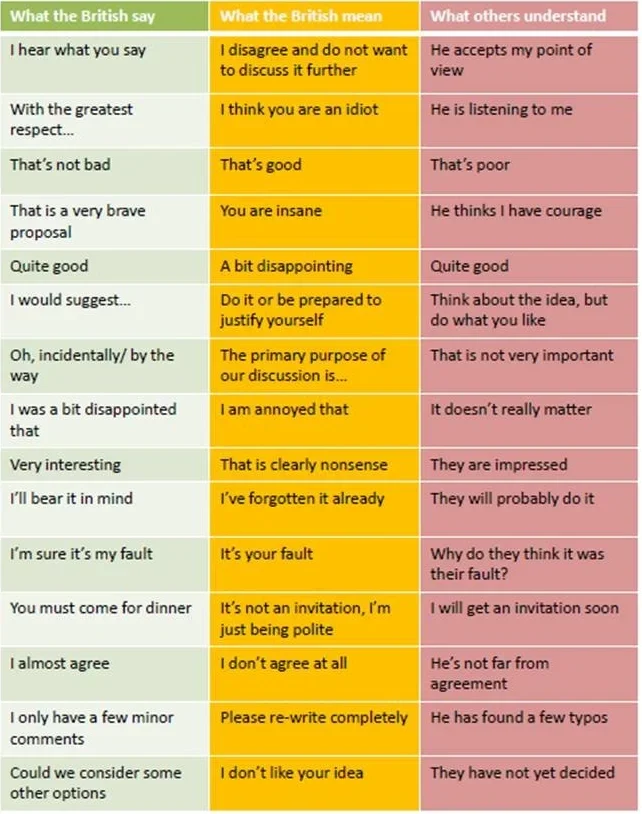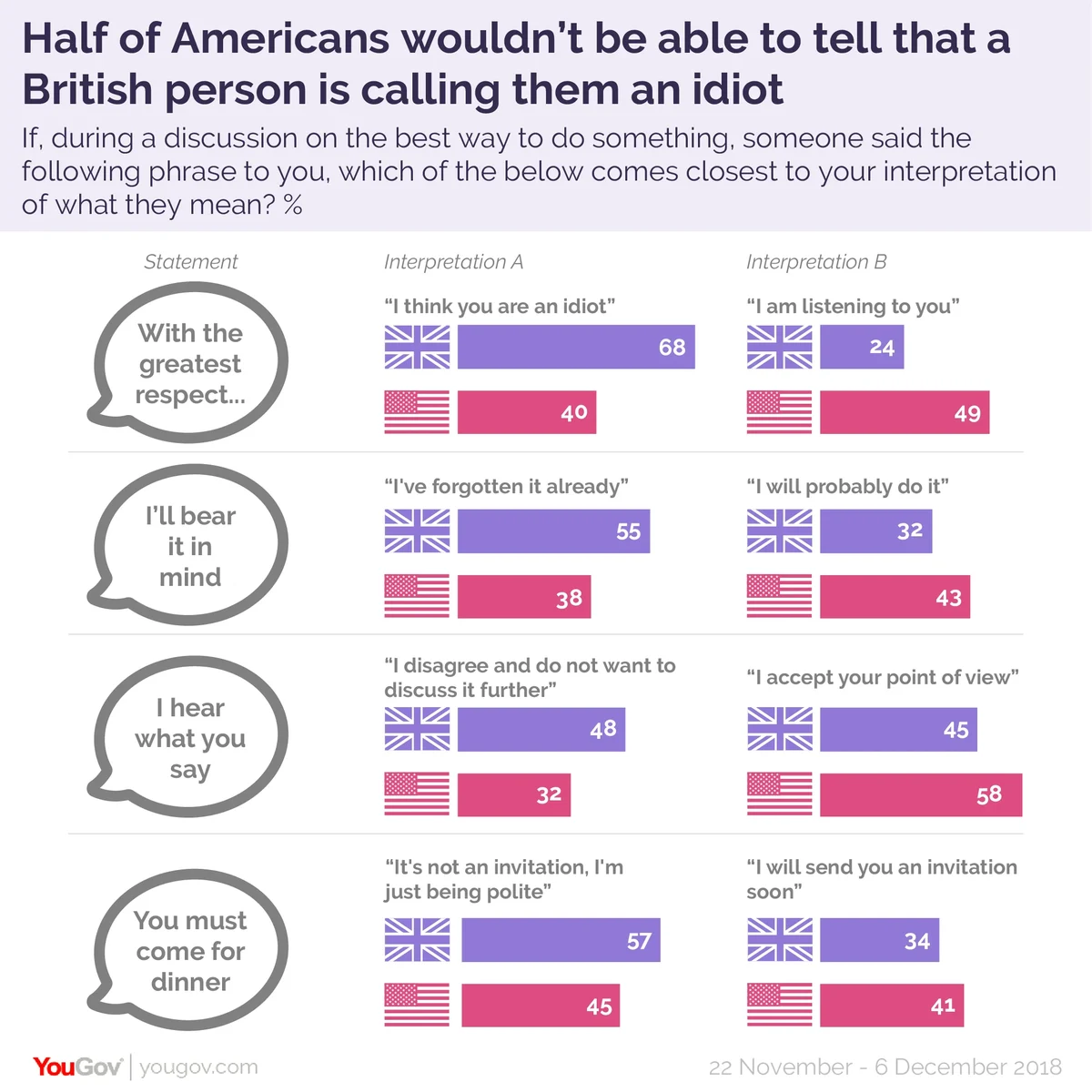A new YouGov survey shows many Americans wouldn’t get British subtext
It has been said that Britain and America are two nations separated by a common language. Now a new YouGov Omnibus survey reveals how Americans should be cautious about taking certain statements by Brits at face value, as British English has long since been adapted to serve the nation’s passive aggressiveness.
The survey is based on a humorous meme showing how foreigners don’t understand the subtext of British English.

For fun YouGov asked both Britons and Americans which translation they think is right. While not all the phrases show a difference in transatlantic understanding, there are some statements where many Yanks are in danger of missing the serious passive aggression we Brits employ.
The biggest difference is over what “with the greatest respect” means. While half of Americans (49%) believe this is a way of letting someone know their views are being heard, even though there is disagreement, for more than two thirds of Brits (68%) the phrase is social code for “I think you are an idiot”.

Britons are similarly unwilling to express explicit dissent with one another. For instance, while Americans tend to interpret “I hear what you say” as “I accept your point of view” (58%), for Brits the more common translation is in fact “I disagree and do not want to discuss it further” (48%).
Likewise, while to an American the words “I’ll bear it in mind” tend to imply that something will probably be done (43%), most Brits understand it to mean “I’ve forgotten it already” (55%).
You should also be wary of invitations from British people to dinner. To most Brits (57%), expressing that “you must come for dinner” is simply a social nicety rather than an actual cooking commitment. By contrast, 41% of Americans believe that they’ll be gathered round the dinner table in no time (whether or not they should be looking forward to British cuisine in the first place is another issue).
Photo: Getty
Learn more about YouGov Omnibus









